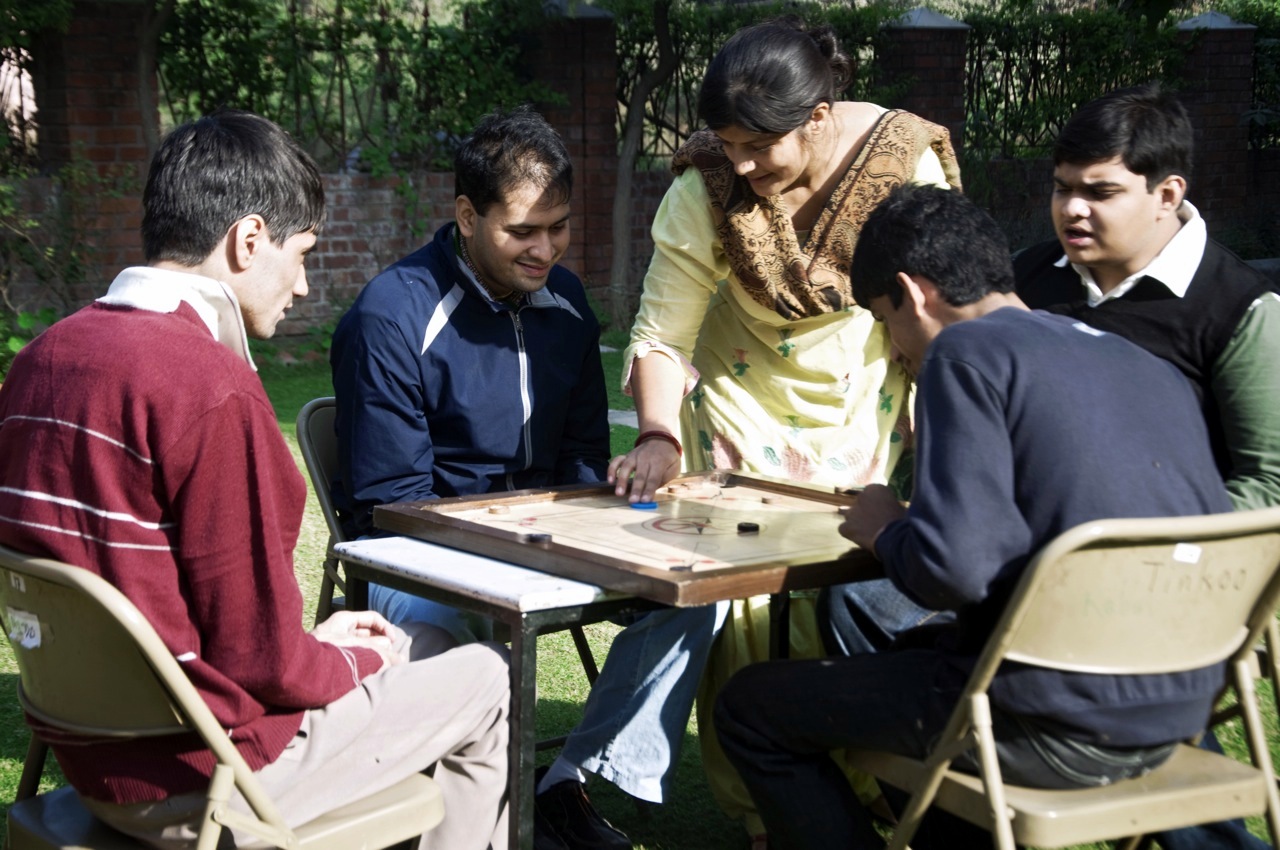SOCIAL COMMUNICATION PROGRAMS

Autism is often termed as a ‘social communication disorder’. Irrespective of the cognitive abilities of the individual, all persons with autism have a degree of difficulties in their communication and social understanding and responses. The degree, of course, does vary across individuals, but, even amongst those who have lower support needs, the rules and nuances of social interaction, any abstract usage of language, both receptive and expressive, and various other such elements of social communication can be very challenging. These difficulties, needless to say, do come in the way of inclusion. The aim of the Social Communication Programmes offered at Action For Autism is to intervene in these areas of difficulties experienced by individuals with autism so as to prepare them to lead more inclusive lives.
Bubbles Social Communication Group
Children who are functionally more able and based in mainstream schools may find it difficult to follow group instructions, comply with the daily routines of classrooms like taking out notebooks, copying from the blackboard, sitting during transitions, waiting for their turn in classroom activities, asking for help and providing answers to questions they may already know. To address such difficulties commonly faced by children with autism in mainstream schools, this weekly programme replicates classroom situations through fun activities and builds upon social skills necessary to interact with peers and adults.
Magic Beans Comprehensive & Advanced Language Class
The Magic Beans Language classes offer a comprehensive and advanced language curriculum. Through this novel programme, the children learn different aspects of language. The programme is divided into 4 modules, each module having 4 weekly sessions for 2 hours each. The modules encompass:
1. Listening and memory:The rationale behind this module is that limited visual and auditory memory, especially in a school setup, may not only affect the child’s response to questions and instructions but also impact his reading, writing, drawing or ability to copy from a black board. Through discussions, challenging exercises, interesting worksheets and interactive games this module focuses on overcoming these difficulties.
2. Sentence formulation:In this module we use stimulating activities to teach the fundamentals of sentence construction using verbs, prepositions, pronouns, articles, adjectives and plurals .The module also encourages the development of a wide range of social/communication skills like listening, turn taking, and developing self-confidence through talking in context.
3. Reading Comprehension:We know that for a lot of children with autism reading with comprehension may be a stumbling block. In this module we target this skill area by doing exercises and lessons that involve: associating pictures with vocabulary in a story; sequencing of story sentences; finding specific information in a text and answering the ‘WH’ questions using a picture prompt; finding the main idea of or choosing the best picture that describes a story and the title that could match/define a picture best.
4. Pragmatics:Even for those children with autism who have basic language skills, initiating and sustaining a conversation may be difficult. Whilst having a conversation, they may have a preoccupation with certain topics, may incorporate irrelevant details, may abruptly change the topic and/ or not let others take turns whilst speaking. This module aims to teach children appropriate use of language especially, its appropriate situational usage. For instance, how to change language according to the age or the needs of a listener, follow rules of conversation, turn taking, etc.
Social Skills Group Training
In this fun, interactive programme, the children get an opportunity to develop social skills for school and everyday life, make friends, talk about feelings and a range of other socially appropriate skills.
*The programme simulates an inclusive classroom set up. Both typically developing children and those with autism learn the skills through role modeling, visuals, power point presentations, etc. together.
*Being a programme that focuses on social skills training, it involves an active participation and interaction of all the children involved.
*The programme is spread over 8 to 10 weekly sessions of two hours each.
For more information about the programmes or for appointments, please contact us.



